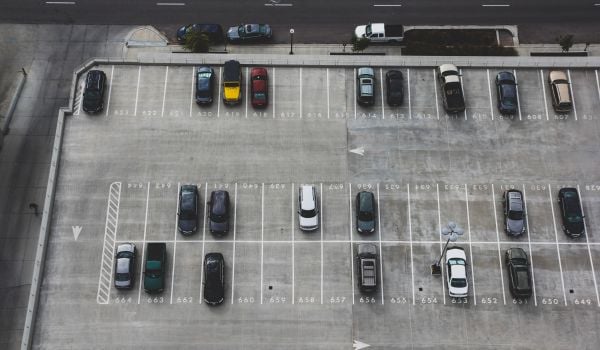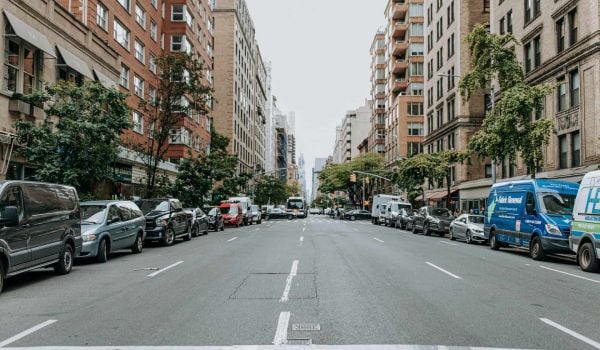It’s a simple story of supply and demand. “There are a lot of cars, but the dense central city doesn’t have a lot of parking spaces to accomodate all those cars,” explains Dave Amos, Cal Poly city planning professor and Next City Vanguard alum, in a recent video on his YouTube channel City Beautiful.
That’s why urban parking prices in privately-owned garages and lots are sky-high. But that equilibrium breaks down for on-street parking, which is typically owned and managed by cities themselves. Despite competing uses for these spaces – outdoor dining, bioswales, bike lanes, loading zones, widened sidewalks and so on – local governments rarely raise their parking prices to market rates, or rates that acknowledge the nominal and real costs of parking. North American cities and local businesses often prioritize having low on-street parking prices to attract customers – and compete with suburban retailers and chains that offer massive lots with free parking.
Strategic parking prices can help address a host of urban issues, including traffic, economic development, heat islands, pollution and emissions. So how can you price on-street parking effectively to help solve these problems?
“A large amount of traffic in central cities comes from people circling the block and circling the block, looking for an empty parking space,” he says. He cites a 2007 study of New York City Streets, which found that 45% of traffic was drivers cruising as they sought a place to park; a 2005 study of Los Angeles, which found that number was 68%; and a 2011 study in Barcelona, which found the number to be 18%.
How could a planner set a price that reduced cruising? “The tricky thing about setting a parking price that ensures that there’s always one free space is that demand changes throughout the day,” he says. “Ideally parking prices would change as demand changes to optimize parking usage.” Amos points to a pilot program in San Franciso for variable parking pricing, which installed sensors at every meter and adjusted parking prices over time to ensure a 60 to 80% occupancy rate. By raising prices at peak periods, they achieved their occupancy goals and cut cruising rates in half, offering a promising model for other cities to follow.
“Variable parking pricing like this are a poor man’s congestion pricing,” he says. While governments can charge drivers to enter their city centers to reduce the number of cars there, as cities including London and San Diego have done (and New York City is deploying in Manhattan), making parking expensive can produce similar results.
Follow CityBeautiful on YouTube and subscribe on Patreon to support the channel.
Aysha Khan is the managing editor at Next City.
Follow Aysha .(JavaScript must be enabled to view this email address)















